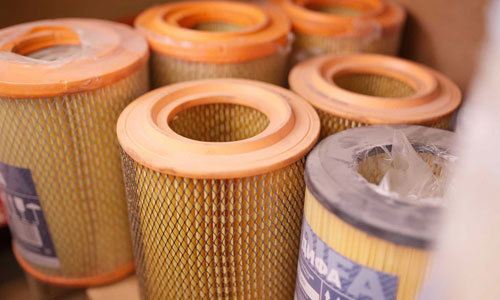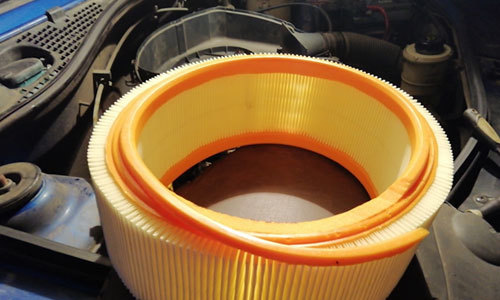The Impact of Quality Air Filters on Excavator Performance: Unlocking Maximum Efficiency
2025-07-25
The Impact of Quality Air Filters on Excavator Performance
Table of Contents
Introduction to Air Filters in Excavators
The Importance of Quality Air Filters
How Air Filters Function in Excavators
Benefits of High-Quality Air Filters on Performance
Enhancing Engine Efficiency
Reducing Fuel Consumption
Extending Engine Lifespan
The Impact of Quality Air Filters on Excavator Performance
Table of Contents
- Introduction to Air Filters in Excavators
- The Importance of Quality Air Filters
- How Air Filters Function in Excavators
- Benefits of High-Quality Air Filters on Performance
- Types of Air Filters for Excavators
- Maintaining Air Filters for Optimal Performance
- Choosing the Right Air Filter for Your Excavator
- Frequently Asked Questions
- Conclusion
Introduction to Air Filters in Excavators
Air filters are vital components in the operation of **excavators**, playing a crucial role in maintaining engine performance by filtering out contaminants from the air entering the engine. In harsh working environments, where dust and debris are prevalent, the quality of air filters directly influences the efficiency and longevity of machinery. This article delves into the impact that high-quality air filters have on excavator performance, exploring their benefits, types, maintenance, and selection criteria.
The Importance of Quality Air Filters
Quality air filters serve as the first line of defense for excavator engines, preventing harmful particles from entering the combustion chamber. Contaminants such as dirt, dust, and soot can significantly impair engine function, resulting in reduced efficiency and increased wear and tear. Therefore, using high-quality air filters is essential for:
- Protecting the engine from damage
- Ensuring optimal combustion
- Improving overall machine performance
By investing in premium air filters, operators can enhance their excavators' operational lifespan while minimizing costly repairs and maintenance.
How Air Filters Function in Excavators
Air filters operate by trapping particles and pollutants present in the air before they can reach the engine. The filtration process typically involves the following steps:
1. **Air Intake**: As the excavator operates, it draws air through the intake system.
2. **Filtration**: The air passes through the filter material, which captures dirt and debris while allowing clean air to flow into the engine.
3. **Engine Combustion**: The filtered air mixes with fuel in the combustion chamber, enabling efficient combustion and power generation.
This filtration process is critical as it directly impacts engine performance, fuel efficiency, and overall productivity.
Benefits of High-Quality Air Filters on Performance
Investing in quality air filters offers numerous benefits that enhance excavator performance. Below, we explore these advantages in greater detail.
Enhancing Engine Efficiency
High-quality air filters significantly improve engine efficiency by ensuring that only clean, filtered air enters the combustion chamber. This leads to:
- **Optimal Combustion**: Clean air promotes complete combustion, resulting in better power generation and reduced emissions.
- **Improved Throttle Response**: Enhanced airflow allows for more responsive acceleration and deceleration, making the excavator more agile on-site.
Reducing Fuel Consumption
Quality air filters contribute to lower fuel consumption by promoting more efficient combustion processes. When engines receive the right amount of clean air, they can burn fuel more effectively, leading to:
- **Cost Savings**: Reduced fuel expenses directly translate to lower operational costs.
- **Environmental Benefits**: Decreased fuel consumption results in lower greenhouse gas emissions, making for a more sustainable operation.
Extending Engine Lifespan
Another critical advantage of using high-quality air filters is the extension of engine lifespan. By effectively filtering out harmful particles, these filters help reduce engine wear and tear, which can lead to:
- **Fewer Breakdowns**: High-quality filters reduce the likelihood of engine failures, leading to more reliable operations.
- **Lower Maintenance Costs**: With reduced wear, operators can expect decreased repair and maintenance costs over the equipment's life.
Types of Air Filters for Excavators
Excavators utilize various types of air filters, each designed to meet specific operational needs. Understanding these types can help operators make informed decisions when selecting filters.
Paper Air Filters
Paper air filters are the most common type used in excavators due to their effectiveness and affordability. These filters are designed to trap a wide range of particles while maintaining good airflow.
Foam Air Filters
Foam air filters offer excellent filtration capabilities, especially in extremely dusty conditions. They can be cleaned and reused multiple times, making them a cost-effective option for operators.
Oiled Air Filters
Oiled air filters provide superior filtration and are particularly effective in environments with heavy particulate matter. The oil traps dirt and debris while allowing air to flow freely, ensuring optimal engine performance.
Maintaining Air Filters for Optimal Performance
Regular maintenance of air filters is crucial to ensure they perform at their best. Operators should follow these best practices:
- **Regular Inspections**: Check air filters periodically for signs of dirt accumulation or damage.
- **Timely Replacements**: Follow manufacturer guidelines for replacing filters, as clogged filters can impede airflow and harm engine performance.
- **Cleaning**: For reusable filters, clean them according to manufacturer instructions to maintain their efficiency.
By adhering to a regular maintenance schedule, operators can maximize the lifespan and effectiveness of their air filters.
Choosing the Right Air Filter for Your Excavator
Selecting the appropriate air filter for an excavator involves considering several factors:
- **Operating Environment**: Assess the conditions in which the excavator will operate, such as dust levels and humidity. This will influence the type of filter needed.
- **Manufacturer Specifications**: Always refer to the excavator's manufacturer guidelines to ensure compatibility and optimal performance.
- **Budget**: While high-quality filters may have a higher initial cost, consider the long-term savings associated with reduced maintenance and improved efficiency.
By carefully considering these factors, operators can choose the right air filter that aligns with their operational needs and budget.
Frequently Asked Questions
1. How often should I replace the air filter in my excavator?
It is generally recommended to replace the air filter every 500 hours of operation, but this can vary based on the operating environment. Always check the manufacturer's guidelines for specific recommendations.
2. Can I clean and reuse air filters?
Foam and some paper air filters can be cleaned and reused. However, disposable paper filters should be replaced once they become dirty. Always follow the manufacturer's instructions for cleaning reusable filters.
3. What are the signs of a clogged air filter?
Common signs of a clogged air filter include reduced engine power, increased fuel consumption, and visible dirt accumulation on the filter's exterior.
4. Do high-quality air filters make a difference in performance?
Yes, high-quality air filters significantly enhance engine performance, improve fuel efficiency, and extend the engine's lifespan by effectively filtering out contaminants.
5. Are there specific air filters for different excavator models?
Yes, air filters are often designed for specific excavator models. Always refer to the manufacturer's specifications to ensure compatibility.
Conclusion
The significance of quality air filters in enhancing excavator performance cannot be overstated. By ensuring that only clean air enters the engine, high-quality air filters improve efficiency, reduce fuel consumption, and extend the lifespan of the machinery. Regular maintenance and informed selection of air filters are essential steps in optimizing performance and reducing operational costs. Investing in quality air filters ultimately leads to more productive, sustainable, and cost-effective excavation operations.
Key words:
Related News
How often does the air filter change?
The air filter element is mainly used to block impurities such as dust and sand in the air.
2024-05-22
What are the car filters? When do car filters need maintenance?
As an oil filter, it is generally replaced together with the oil during maintenance.
2024-05-22
The choice of filter manufacturers should be considered comprehensively
Before choosing a filter manufacturer, you must understand the relevant background of the manufacturer.
2024-05-22








